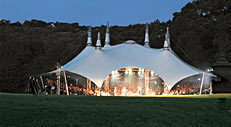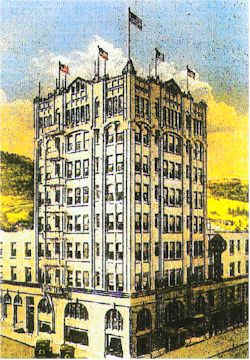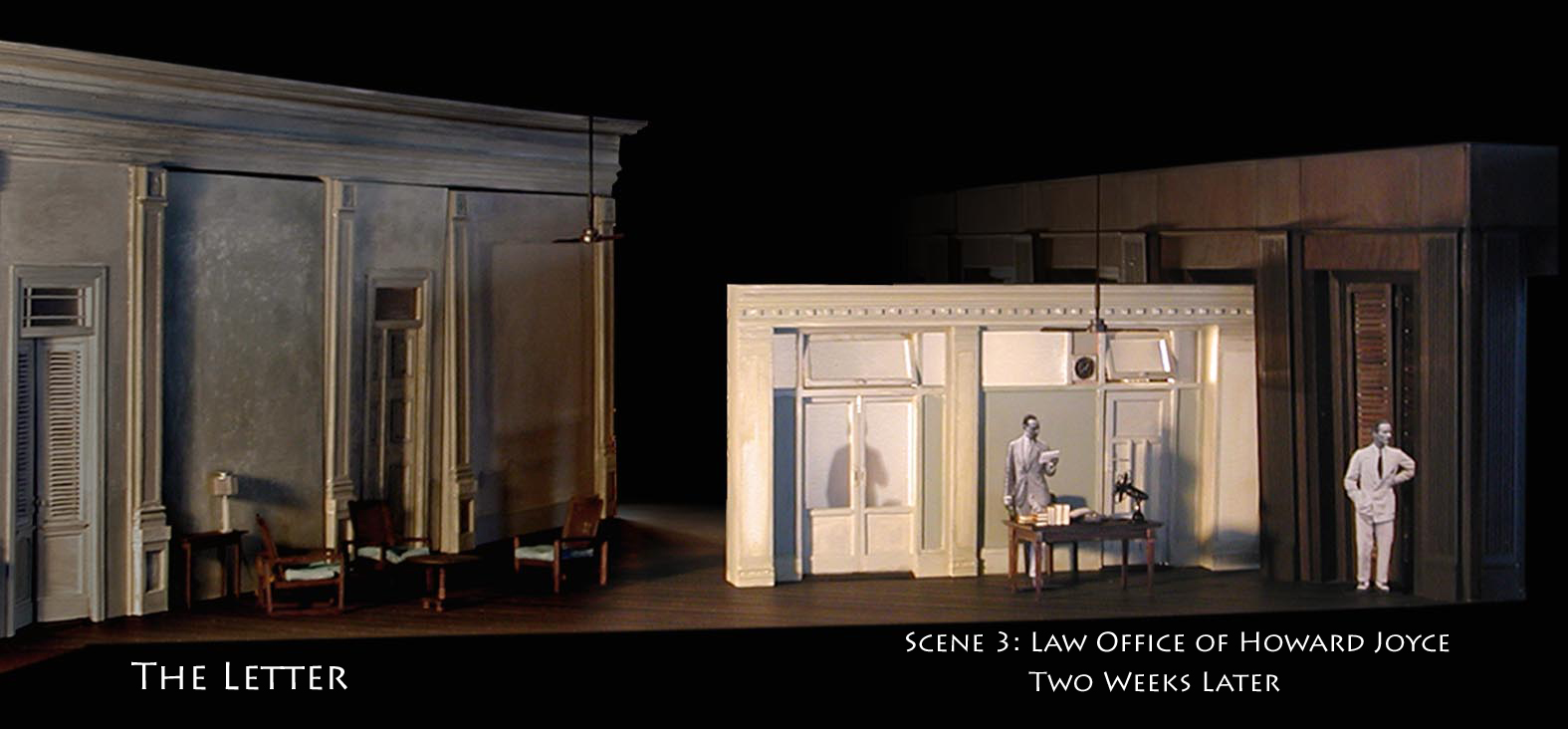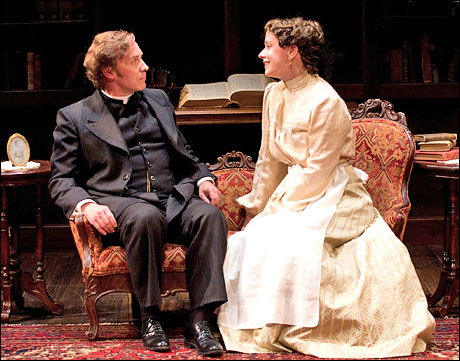 I’m in downtown Los Angeles, where I’ll be seeing Bill Pullman and Julia Stiles in David Mamet’s Oleanna tonight. Meanwhile, the cast of The Letter has assembled in Santa Fe, where rehearsals began yesterday morning with a table reading of the libretto. That surprised me, but then I remembered that Jonathan Kent, our director, spends most of his time staging plays, so it stands to reason that he’d start the ball rolling by having the singers read the script out loud.
I’m in downtown Los Angeles, where I’ll be seeing Bill Pullman and Julia Stiles in David Mamet’s Oleanna tonight. Meanwhile, the cast of The Letter has assembled in Santa Fe, where rehearsals began yesterday morning with a table reading of the libretto. That surprised me, but then I remembered that Jonathan Kent, our director, spends most of his time staging plays, so it stands to reason that he’d start the ball rolling by having the singers read the script out loud.
I know you shouldn’t wish time away, but I can’t help wishing that I could turn the clock forward to July 13, the day when I report to the Santa Fe Opera House for my first rehearsal. Would that bilocation were possible! For now I’m having to rely on long-distance reports from the members of the cast. I returned home from dinner last night to find an e-mail from James Maddalena, who created the title role of John Adams’ Nixon in China and is playing Howard Joyce, a lawyer who bends his code of ethics to save the life of his best friend’s wife, in The Letter. “I think this is going to be stupendous!” he said.
Sounds good to me.
Archives for June 2009
TT: Almanac
“Critics, as they are birds of prey, have ever a natural inclination to carrion.”
Alexander Pope, letter to William Wycherley, Dec. 26, 1704
MUSICAL
A Minister’s Wife (Writers’ Theatre, 325 Tudor Court, Glencoe, Ill., closes Aug. 2). Josh Schmidt, Austin Pendleton, and Jan Tranen have teamed up to create a musical version of George Bernard Shaw’s Candida that’s better than the original. The score is exquisite, the book crisp and pointed, the lyrics plain-spoken yet poignant. The ensemble cast, led by Kevin Gudahl, is excellent in every way, and Michael Halberstam’s staging is wonderfully sensitive. A perfect show, in short, one that is surely destined to make its way to New York–but why wait? You’ll never see it done better than in Chicagoland (TT).
HOW DANCES DISAPPEAR
“Merce Cunningham is shutting down his world-famous dance company–after he dies. That may sound like a dog-bites-man story, but in fact it’s the most surprising and significant piece of dance-related news to come along in years. Most choreographers who run dance companies do everything they can to ensure that their companies will survive them. Not Mr. Cunningham…”
TT: Up in the air (I)
In the summer I hit the drama-festival circuit, and I try to get from one town to the next in as uncomplicated and unhurried a way as I can contrive. Not only has experience taught me to travel light and never fly on show days–to do otherwise is asking for trouble–but I also have to give myself sufficient time to write, file, and edit my Wall Street Journal drama columns from the road.
The upcoming premiere of The Letter, however, means that I’ll be cramming in more shows than usual between now and then, since I’m flying to Santa Fe on July 12 to attend the last two weeks of rehearsal and the first three performances of the opera. It isn’t easy to get from Santa Fe to anywhere else, so I’ve decided not to try to see any out-of-town shows while I’m there. Instead, I’m stockpiling long-running festival performances that I can write about in July.
 I’ve already seen the three Stratford Shakespeare Festival shows that I’ll be reviewing in my July 24 column, and last week Mrs. T and I went to the Hudson Valley Shakespeare Festival to see Much Ado About Nothing and Pericles, about which I’ll be writing on July 10. We go to Hudson Valley every summer–it’s our favorite outdoor Shakespeare festival–and we have our travel routine down pat. We always stay at Storm King Lodge in Mountainville, a stone’s throw away from Storm King Art Center, and we always dine al fresco each night at the Boscobel Restoration, the 1808 house on whose elegantly manicured lawn the Hudson Valley Festival pitches its tent.
I’ve already seen the three Stratford Shakespeare Festival shows that I’ll be reviewing in my July 24 column, and last week Mrs. T and I went to the Hudson Valley Shakespeare Festival to see Much Ado About Nothing and Pericles, about which I’ll be writing on July 10. We go to Hudson Valley every summer–it’s our favorite outdoor Shakespeare festival–and we have our travel routine down pat. We always stay at Storm King Lodge in Mountainville, a stone’s throw away from Storm King Art Center, and we always dine al fresco each night at the Boscobel Restoration, the 1808 house on whose elegantly manicured lawn the Hudson Valley Festival pitches its tent.
 Two nights on the Hudson isn’t nearly enough to suit me, but it was all the time I could spare this season. America is a big country, and it’s never bigger than when you’re going directly from the Hudson Valley Shakespeare Festival to the Oregon Shakespeare Festival with no stops in between. No playgoing stops, that is: on Thursday I ate a hearty breakfast in Mountainville, drove to the train station in Beacon, took a commuter train from there to Grand Central Station, caught a cab from there to LaGuardia Airport, flew to Denver, spent two hours waiting for a thunderstorm to blow over, flew to Oregon, picked up a rental car, drove to the Ashland Springs Hotel, and went straight to bed, having spent a grand total of eighteen hours getting from one coast to the other.
Two nights on the Hudson isn’t nearly enough to suit me, but it was all the time I could spare this season. America is a big country, and it’s never bigger than when you’re going directly from the Hudson Valley Shakespeare Festival to the Oregon Shakespeare Festival with no stops in between. No playgoing stops, that is: on Thursday I ate a hearty breakfast in Mountainville, drove to the train station in Beacon, took a commuter train from there to Grand Central Station, caught a cab from there to LaGuardia Airport, flew to Denver, spent two hours waiting for a thunderstorm to blow over, flew to Oregon, picked up a rental car, drove to the Ashland Springs Hotel, and went straight to bed, having spent a grand total of eighteen hours getting from one coast to the other.
I fell hard for Ashland when I went there for the first time three years ago, and I haven’t changed my mind. It’s an immaculately kept little town whose business district seems to consist mainly of first-class restaurants, of which Amuse and Chateaulin remain my favorites. You can see all the plays you want in between meals–the Oregon Shakespeare Festival performs in three different theaters–and you can walk just about everywhere without difficulty, though you do need a car to get to Mount Ashland, the 7,533-foot-high peak to whose summit I hiked last Saturday morning.
Really. No fooling.
(To be continued)
TT: Another little taste
I recently posted a photo of the scale model of Hildegard Bechtler’s set for the first and second scenes of The Letter, which take place in the living room of the home of Leslie Crosbie, who shoots her faithless lover dead as the opera begins. Here’s the set for the third and sixth scenes, which take place in the Singapore office of Howard Joyce, Leslie’s lawyer and her husband’s best friend:

Since The Letter plays continuously without a break, the sets are designed to be changed quickly in full view of the audience. The wall unit at downstage left is rolled on from the wings.
* * *
Anne Constable wrote a story for Sunday’s Santa Fe New Mexican that tells how the Santa Fe Opera‘s technical and property crews go about building the sets and props for the company’s productions. Needless to say, I was especially interested in the part about The Letter, but the whole piece makes for fascinating reading.
TT: Almanac
“Critics are like brushers of noblemen’s clothes.”
George Herbert, Jacula Prudentum
TT: Heart transplant
Today’s Wall Street Journal drama column is devoted in its entirety to a Chicago-area show, Writers’ Theatre’s premiere production of A Minister’s Wife. Here’s an excerpt.
* * *
Music was George Bernard Shaw’s first love, and he claimed that his plays were operas in disguise. Yet few composers have found inspiration in the chilly glitter of his dialogue, and only one musical version of a Shaw play, “My Fair Lady,” has hit the bull’s-eye–until now. Austin Pendleton, Josh Schmidt and Jan Tranen have turned “Candida” into a chamber musical called “A Minister’s Wife” that is the talk of Chicagoland. No doubt it will find its way to New York in time, though I wouldn’t wait for that to happen if I were you. Not only is “A Minister’s Wife” the most fully realized piece of musical theater to come along since “The Light in the Piazza,” but I can’t imagine anyone improving on the quiet delicacy of Writers’ Theatre’s premiere production….
 What the makers of “A Minister’s Wife” have added to “Candida” is the warmth that its author left out–yet they have accomplished this transformation without doing violence to the letter of Shaw’s play. Mr. Pendleton, the author of “Orson’s Shadow,” has done a remarkable job of compressing a tightly written three-act play into an even tighter one-act libretto that runs for roughly 90 intermission-free minutes. No less striking are Ms. Tranen’s plain-spoken yet poignant lyrics, which heighten the emotions concealed in Shaw’s neatly turned prose…
What the makers of “A Minister’s Wife” have added to “Candida” is the warmth that its author left out–yet they have accomplished this transformation without doing violence to the letter of Shaw’s play. Mr. Pendleton, the author of “Orson’s Shadow,” has done a remarkable job of compressing a tightly written three-act play into an even tighter one-act libretto that runs for roughly 90 intermission-free minutes. No less striking are Ms. Tranen’s plain-spoken yet poignant lyrics, which heighten the emotions concealed in Shaw’s neatly turned prose…
Josh Schmidt first came to the attention of New York audiences two seasons ago with his score for “Adding Machine,” a musical so glitteringly crafted that I initially took its self-assurance for glibness. No one will make that mistake about the music that Mr. Schmidt has written for “A Minister’s Wife.” Atop a crisply chattering minimalist-style instrumental accompaniment that evokes the typewriter used by Morell’s secretary to transcribe his sermons, Mr. Schmidt flings long, tender arcs of melody that cling to the ear like phrases from old love letters. The results are at once strongly contemporary and immediately engaging….
* * *
Read the whole thing here.
